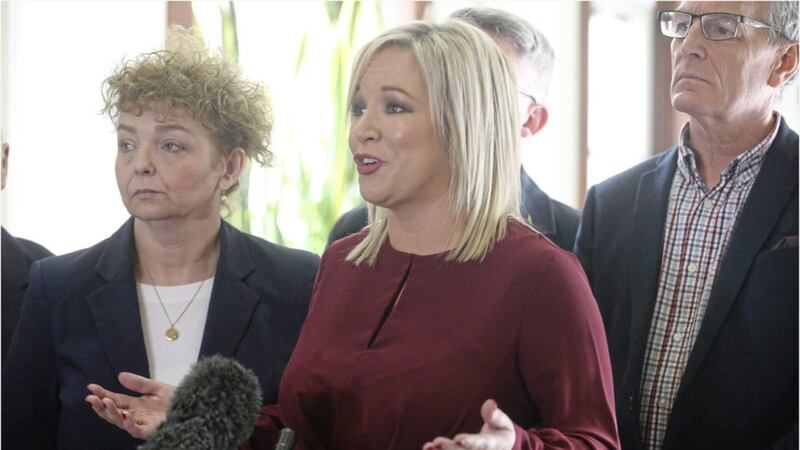With the gushing way Sinn Féin's leadership now talk about the Good Friday Agreement you could be forgiven for assuming that they regard it as some sort of Holy Grail for uniting the people of Northern Ireland around the Peppa Pig anthem, 'peace and harmony around the world.'
Every day or so one of their key players (apart from John O'Dowd, who now has more chance of speaking at the DUP's annual conference on Saturday, than he does of fronting a Sinn Féin press event anytime soon) pops up to sing the praises of the GFA. In truth, of course, it serves one purpose and one purpose only for the party: a purpose summed up by Gerry Adams in April 1999.
''(The GFA) is, therefore, not a settlement, but a basis for advancement. It marks the beginning of a transitional period towards Irish reunification. During the talks, we set ourselves to the task of weakening the British link while defending the right of Irish people to national self-determination. It is in this context that we constantly measure the gains and losses contained in the Good Friday Agreement.'' In other words, the parts that don't assist the ongoing cause of unity are without purpose and unworthy of implementation.
So, could Sinn Féin not just say that, rather than peddle the nonsense that the agreement has some sort of unifying purpose for them in Northern Ireland? I'm well aware that the DUP has no particular fondness for the GFA either (although it has actually become a thing of wonder to see how it and some elements of loyalism suddenly cling to the agreement now that Boris has shafted them): but still, that is no excuse for Sinn Féin's teary-eyed, and entirely hypocritical embrace of the agreement. Yes, we get get it: unity trumps all else for them, so stop the hoopla about protecting and promoting the agreement in the name of everyone in Northern Ireland. You don't actually give a damn about the rest of us. You don't want Northern Ireland to work.
Which is why the party keeps on and on and on about unity. Earlier this week Michelle O'Neill was at it again: "Everything is moving in that direction. I believe it was moving there even before Brexit, but clearly Brexit has become a catalyst for it...The genie is out of the bottle. The prudent thing now is to start planning for it."
And that stance on unity won't change, irrespective of hard Brexit, soft Brexit or, which is still a possibility, no Brexit at all. The stance wouldn't have changed if every single voter in the United Kingdom had opted for Remain. It wouldn't have changed if Martin McGuinness were still alive and the Assembly hadn't been collapsed by his resignation letter in January 2017 (which, in essence, was brought down to allow the party to play the 'England's misfortune is Ireland's opportunity' card).
Fine and dandy and pretty much what you would expect from the party. I make no criticism of the cards they choose to play: although I'd prefer some honesty (as I do with all parties). I have been on a couple of panels with Michelle and I have no personal animus against her, but she must know that it is utter nonsense to say that any conversation on unity "...does not have to be rancorous. It can be done in a very inclusive way."
Let's be honest, Sinn Féin's response to the Brexit debate - here and in Westminster - has hardly been rancour-free or inclusive. Indeed, it has often be harsh, finger-pointing and excluding. So I'm not sure I'd have all that much confidence in a united Ireland debate (which neither the Irish government or political establishment has bought into) at this point. Particularly when the fallout from Brexit has increased levels of political toxicity.
And blaming the DUP for not 'really' being pro-GFA has worn a bit thin. Indeed, I'm not sure that the DUP's position is any worse than Sinn Féin's, which seems to be not much more than deploying the agreement entirely for their own end-the-Union-as-soon-as-we-can purposes. Neither of them sees the agreement as a way of bringing both sides together: which probably explains their 'ourselves together but alone' deal in 2007 and the fact that we're at day 1012 of their latest stand-off.








